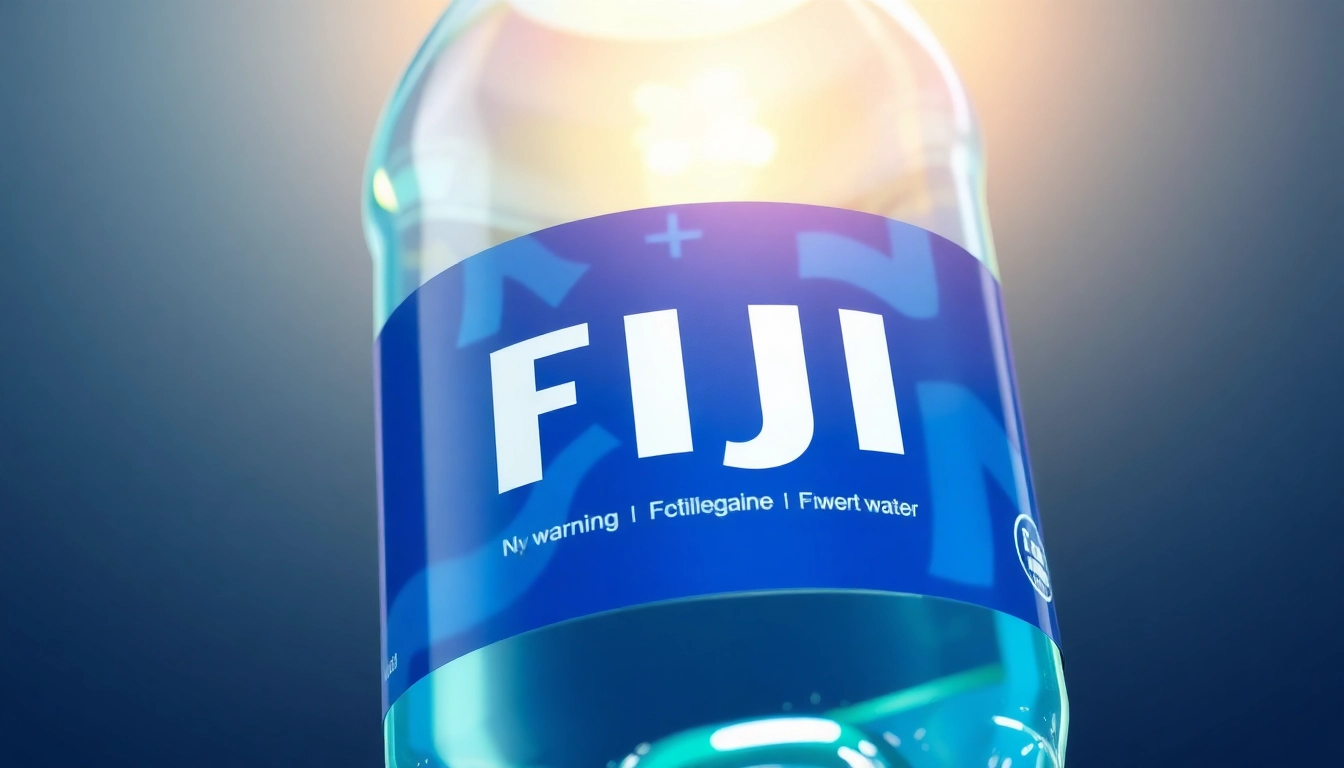Understanding the Fiji Water Recall
On May 23, 2024, the U.S. Food and Drug Administration (FDA) announced a significant recall concerning Fiji Natural Artesian Water. This recall involved approximately 78,533 cases, which translates to about 1.9 million individual bottles. The recall was prompted by concerns regarding contamination with manganese and bacteria, resulting in a Class III designation by the FDA due to the potential for adverse health effects. The recalled bottles were primarily sold online, particularly via fiji water bottles recalled on platforms like Amazon.
What Happened During the Recall?
The recall was initiated after tests indicated that certain batches of Fiji water showed elevated levels of manganese. According to the Minnesota Department of Health, excessive manganese intake can be detrimental, particularly among sensitive groups such as infants, pregnant women, and individuals with certain health conditions. Additionally, the tests revealed the presence of three genera of bacteria, further elevating the potential health risks associated with the affected products.
Details of the Recalled Fiji Water Bottles
The specific recall encompassed 500 milliliter bottles of Fiji Natural Artesian Water. Each case contained 24 bottles, and consumers were urged to check their inventory immediately. The products were sold primarily online during the time frames specified by the recall announcement. The recall not only affected consumers but also retailers, who had to remove the affected products from their shelves to prevent sales and potential health risks.
Health Risks Associated with Contaminated Water
Drinking contaminated water can expose individuals to various health risks. Manganese, while an essential nutrient in small amounts, can be harmful in large quantities. Chronic exposure to high levels may lead to neurological issues and developmental problems in young children. The presence of bacteria increases the risk of gastrointestinal illnesses, which can be particularly severe in vulnerable populations. Therefore, understanding the implications of consuming contaminated water is critical for public health.
Identifying Affected Bottles
How to Determine if Your Fiji Water is Recalled
Consumers can identify potentially recalled bottles by looking for specific center codes or batch numbers on the packaging, which the FDA has publicly listed. These codes are crucial as they help consumers verify whether they possess any impacted products at home. The recall announcement outlines these codes, and the information is available on the FDA’s official website and various news outlets.
Visual Indicators of Recalled Bottles
Aside from checking the center codes, consumers should inspect the packaging carefully. Recalled bottles typically feature certain labels and details that can indicate their status. Look for any alterations in seals, expiration dates, and branding that may not align with authentic Fiji Water products. If in doubt, comparing the bottle with images from trustworthy sources can be beneficial.
Implications for Consumers and Retailers
The implications of the recall are multi-faceted. Consumers are at risk if they consume the recalled product, which can lead to serious health issues. As for retailers, the recall necessitates the immediate removal of affected products, staff training on product recognition, and potential legal action depending on state and federal regulations. Additionally, there is a reputational risk for Fiji Water, which could impact sales and consumer trust long-term.
Steps to Take if You Have Recalled Bottles
Immediate Actions for Consumers
If you believe that you have purchased recalled Fiji Water, the first step is to stop consuming it immediately. Dispose of any remaining bottles in a safe manner to eliminate the risk of accidental consumption. It is important to inform family members or anyone else who might be using the water to mitigate health risks.
Contacting Sellers and Manufacturers
Consumers should reach out to sellers or manufacturers for guidance. Most reputable companies have established protocols for such situations. This may involve returning the recalled products directly to retailers or contacting customer service for further instructions. Keeping records of the purchase, including receipts, will aid in this process.
Receiving Refunds or Replacements
Obtaining refunds or replacements will typically depend on the policies of the retailer or manufacturer. Many sellers offer full refunds for recalled products, provided customers return the items in compliance with stated guidelines. It’s advisable to check the retailer’s website or contact their support line for specific instructions on how to claim a refund or replacement efficiently.
Preventing Future Contamination
Recommended Practices for Bottled Water Safety
To ensure bottled water safety and avoid future contamination, consumers should educate themselves about where their bottled water is sourced. Always choose reputable brands with transparency about their sourcing and quality control processes. Regularly reviewing product recalls and health advisories from the FDA can provide additional reassurance.
Understanding Source and Quality Control
The source of bottled water has a significant impact on its safety and quality. Companies should implement stringent quality control measures during bottling processes to reduce potential contamination risks. Awareness of a brand’s sourcing practices, including water testing frequency and contamination history, will empower consumers to make informed choices about their bottled water purchases.
Consumer Awareness and Reporting Issues
Consumer awareness plays a vital role in ensuring public health safety. If consumers notice anything unusual about the taste, smell, or appearance of bottled water, they should report these concerns to manufacturers and regulatory bodies. Additionally, engaging with community resources for sharing information about potential issues can lead to quicker recall actions in the future, benefiting the wider public.
Staying Informed About Future Recalls
Resources for Recall Updates
To stay informed about future recalls, consumers should utilize resources such as the FDA’s website, which provides a comprehensive list of all recent recalls. Additionally, trade publications and food safety advocacy groups often release alerts about contaminated products or recalls. Subscribing to news alerts from reputable sources can help keep individuals informed about potential issues affecting the products they use daily.
Importance of Monitoring FDA Announcements
The FDA plays a critical role in ensuring food and beverage safety in the United States. Monitoring FDA announcements is essential for understanding product recalls and safety alerts. Being proactive about potential recalls can help consumers avoid serious health risks by eliminating contaminated products from their homes promptly.
How to Stay Engaged and Educated
Staying engaged and educated regarding matters of food safety and recalls not only protects individual health but also contributes to public health. Consumers can participate in local initiatives that promote awareness about food safety and advocate for stronger regulations in bottled water sourcing and testing. Educational workshops and community outreach programs can further enhance knowledge and vigilance regarding potential contamination issues.



